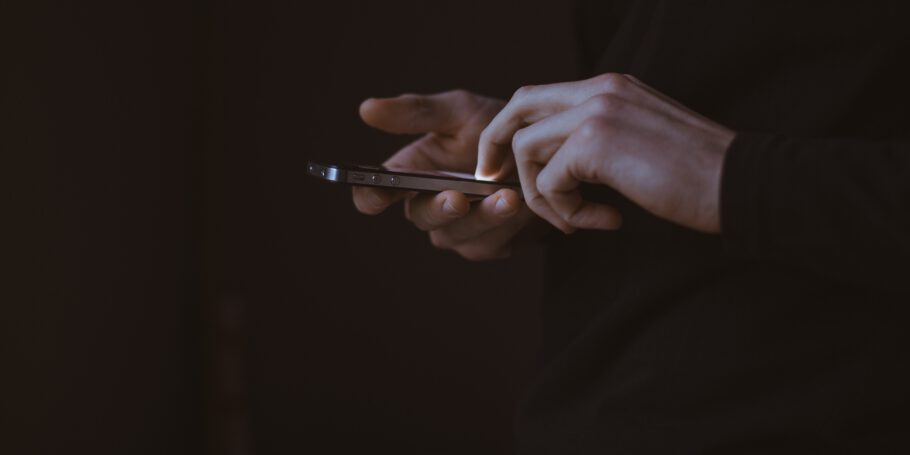Last will sent by sms and inheritance of Gmail – i.e. inheriting in 21st century
Areas of interests / 24 September 2018

It has been known for a long time that the law does not catch up with life. In particular, the modern life, where the majority of thigs are done through the Internet or with the use of a smartphone. What if – caught off guard by the circumstances – we send our last will also by sms or we leave it in the cloud? Who will inherit our works saved on the server of an electronic mail? The problem is not as abstract as it may seem.
Sudden circumstances
Let us imagine such situation: a Polish citizen, a writer, goes on a journey to the other end of the world, e.g. to Australia. There, he dies in an accident. Soon before his death he sends an sms to his life partner in which he informs her that he has finished work on a new novel. The novel is saved in a Gmail inbox in its working version. At the same time, he informs her that he wrote the novel for her and, if anything happens to him, he wants all of his assets – including the rights to the book – to belong to her.
This is almost like a film plot. But the legal problems which the potential heiress will have to cope with are quite real. Let us look at the closely.
Last will sent by e-mail or sms
If the hero of our story sends an sms with his last will during his stay in Poland, then there would be no doubt – this would not be considered as a last will. Our civil code contains detailed guidelines regarding the form of the last will. The testator should write all of his/her last will in handwriting, sign it and date it. An alternative solution is a visit at the notary.
Fortunately, the last will was drawn up when our writer was outside of Poland. There are countries in which there is quite a lot of freedom as regards the form of dispositions in the event of death. For example, in the matter of Van der Merwe v. Master of the High Court and another, the Supreme Court in South Africa approved an unsigned draft of the last will sent to a friend by e-mail immediately before one’s death as the last will of the deceased. In the case of Mellino v Wilkins considered by the Australian Supreme Court, the last will in the form of a recording on a DVD was considered to be valid. The DVD was described by the deceased as “my last will” and – even highly informally – it contained the testator’s dispositions concerning his assets. In the matter of Rioux v. Coulombe, the Supreme Court in Quebec considered as the last will a Word document, saved on an external hard disc, which was indicated by the testator in her letter found at the location where she committed suicide. In the United States, in a publicised case of Estate of Javier Castro, the court in Ohio approved as the last will a document which was prepared by Mr Javier Castro soon before his death, already being in the hospital, on his tablet and signed on the screen with a touch pen. The last will was also signed by his brothers, as his witnesses. Finally, in the matter of Nichol v Nichol the Supreme Court decided that a draft sms saved on the phone may constitute a last will if it ends with the statement “my last will”.
In other words, if our hero had sent an sms with his last will while being in any of the aforementioned countries – there is a chance that the court would have considered it to be his last will. What is more, it is also possible that a Polish court, considering the matter, would also admit the existence of such last will. That is because, according to the Haguq Convention on collision of rights regarding the form of last will dispositions, it is sufficient for the form of the last will to be consistent with the internal law of the country in which the testator drawn up his/her last will. But it is better not to tempt fate and prepare the last will in advance in writing or before a notary.
Inheritance of Gmail
The validity of the last will does not, however, solve the problems in our matter. That is because the heiress of the writer still has to gain access to his mailbox where he recorded his latest novel.
Let us assume that the testator never provided her with the password. In the case of Gmail, it will first be necessary to submit an application to Google for access to the data gathered in the account of the deceased person. Even if the request is granted, the heirs will have to obtain a court judgement issued in the United States, approving the text of statements suggested by Google. In other words – this is a long and bumpy road.
the site with an application to collect data from the account of the deceased person
What is important, even if the heiress has a password to the Gmail account of the deceased, then, according to the conditions of using the Google services, any logging into his account would have an illegal character (only the holder of the account is entitled to use the same). In the event that Google finds out about the unauthorized access, it would immediately block and close the account.
That is why, the best solution which I recommend is previous use of the manager of inactive accounts. This is where we can specify what will happen with our Gmail and other Google services after our death. We have a possibility of specifying who may gain access to our services and to what extent. Google will automatically notify such persons if the user is inactive for a certain period of time. Thanks to the manager of inactive accounts, we may save a lot of hassle to our relatives connected with access to our digital assets gathered under the Google services.
site of the manager of inactive accounts
Summary
According to research, only 13 out of 100 Poles aged over 50 have drawn up a last will (link). I suppose that a few per cent of people from this group decided what will happen to their digital assets after their death. Therefore, it seems that the aforementioned facts apply to most of us. If we do nothing, our mailboxes, photographs in the cloud, not to mention our portfolio of cryptocurrencies, may fall into non-existence and oblivion.
What to start the drawing-up of a good last will with? Definitely not with an sms. But this will be discussed on the text article.
The author of the article is Tomasz Krzywański, an attorney-at-law at GWW.
Author
Tomasz Krzywański
adwokat
Na początku swojej przygody z prawem chciałem być jak Harvey Specter z popularnego serialu Suits i prowadzić wielomilionowe spory między korporacjami. Z czasem przekonałem się jedn...
Powiązane wpisy
COVID-19 and the construction industry – force majeure in FIDIC contracts
COVID-19 and the construction industry – force majeure in FIDIC contracts
Tax credit for donors – zero VAT rate for entities providing personal protective equipment
Tax credit for donors – zero VAT rate for entities providing personal protective equipmentAlcohol for disinfection as the tax-deductible cost
Alcohol for disinfection as the tax-deductible costTax residency during lockdown
Tax residency during lockdownObawiasz się,
że ominą Cię
najważniejsze zmiany
w prawie?





